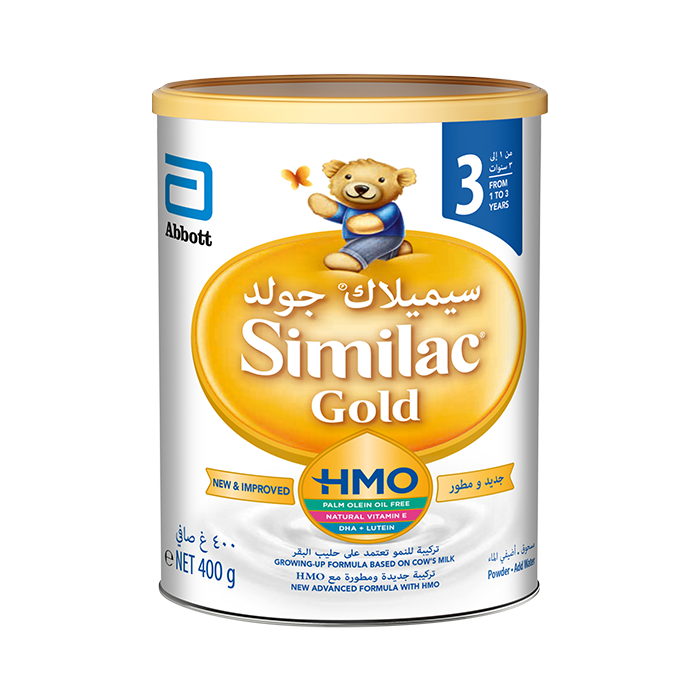Similac® Gold 3
- Main Image
-

- Subtitle
- Follow-On Formula Milk - From 1 To 3 Years Old
- Title
- Similac® Gold 3
- Detail Page Path
Highlights key nutrients important for postpartum recovery including iron, calcium, and vitamins, explaining their benefits for new mothers.
Provides information on the best dietary sources of essential postpartum nutrients to aid in recovery and overall well-being.
Discusses when and how supplements can be used effectively to meet the increased nutritional needs of postpartum women.
It is important that mothers get a healthy nutrition for postpartum recovery. After delivery, the body needs to replace the nutrients lost during childbirth. While there are many diets out there that you can follow, it is crucial that you get a healthy and well-balanced diet that contains sufficient amounts of these five nutrients in order to support the optimal recovery of your body. Read on to find out what they are and how they are important to you.
1. Iron
Mothers who experience significant blood loss during delivery may experience shortness of breath easily, feel physically weak and tired and even suffer from poor appetite after child birth. This could be due to an iron deficiency, called Anemia. Your body may also continue to bleed after the delivery of your baby, also known as lochia, which will cause you to lose more blood. Iron is a crucial nutrient that your body needs in order to make new blood cells to replace the ones you lost.
To ensure that your body is able to replenish the iron lost during delivery, you can supplement your postpartum diet with iron-rich foods such as lean meat, liver, clams, oysters, green leafy vegetables and fortified foods such as cereal and maternal milk. If you’re vegetarian, you can take iron supplements under your doctor’s advice.
You can also obtain more Vitamin C, from plant-based iron-rich foods such as spinach, to increase iron absorption in your body. Avoid drinking excessive black tea as tannic acid in the tea may decrease the absorption of iron.
2. Vitamin B12
This essential vitamin is crucial for the development of healthy nerve tissues and for stimulating brain functions. It is also a crucial nutrient needed in proper blood cell production. As such, mothers with a vitamin B12 deficiency may be prone to Anemia.
The best sources of vitamin B12 are animal food, such as clams, tuna, liver, beef and salmon. Some fortified cereal and dairy products may also contain vitamin B12. A B12 supplement can be added into your diet if you are vegetarian or unable to consume meat.
3. DHA
Omega-3 fatty acids such as docosahexaenoic acid (DHA) are helpful because our body does not produce enough of it. DHA is one of the main components of brain tissue and it helps in improving mental focus, reducing inflammation and the risk of postpartum depression. While increased DHA may not be a full preventive measure for postpartum depression, higher levels of DHA may help regulate your feelings as it plays a part in serotonin production.
Foods rich in DHA include fish such as salmon and sardines, fortified eggs and dairy. You can also take a DHA supplement to supply your body with this nutrient.
4. Choline
Choline is a form of vitamin B that supports many bodily functions and your overall health. Having adequate amounts of choline helps to ease the symptoms of decreased focus and memory after delivery.
Increase the choline intake in your diet by including food such as eggs, quinoa and organ meats like liver into your postpartum meals, as well as choline fortified foods such as maternal milk.
5. Vitamin D
Vitamin D supports your immune system and also reduces the risk of postpartum depression and anxiety. While your body can naturally produce Vitamin D while in sunlight, you might not get a chance to head out to soak in the sunlight as a new mother. However, having that extra boost of Vitamin D is crucial as our bodies does not produce enough naturally, especially if you’re going to be staying indoors most of the time.
The best sources of Vitamin D are fatty fishes like salmon and tuna, fortified dairy, eggs and orange juice.
As important as it is to maintain a healthy diet during pregnancy, it is also equally important to maintain a good nutritious diet after delivery in order to help your body in its recovery and healing. Keeping to a healthy and balanced will allow you to be in the best shape physically and mentally to welcome your new bundle of joy!
References:
Hunter W., Jiang X., Caudill M. 2019. Choline: Exploring the Growing Science on Its Benefits for Moms and Babies. US National Library of Medicine. doi: 10.3390/nu11081823
Khor S. 2019. Eating Well: A Healthy and Well-Balanced Postnatal Diet. The New Age Parents. Retrieved from: https://thenewageparents.com/eating-well-a-healthy-and-well-balanced-postnatal-diet/
Levant, B. 2011. N-3 (Omega-3) Fatty Acids in Postpartum Depression: Implications for Prevention and Treatment. US National Library of Medicine. doi: 10.1155/2011/467349
Marengo, K., Eske, J. 2019. Everything you need to know about choline. Medical News Today. Retrieved from: https://www.medicalnewstoday.com/articles/327117#benefits
McCulloch, M. 2018. 12 Health Benefits of DHA (Docosahexaenoic Acid). Healthline. Retrieved from: https://www.healthline.com/nutrition/dha-benefits#section4
Reinagel, M. 2019. Top 5 Nutrients for Postpartum Recovery. Scientific American. Retrieved from: https://www.scientificamerican.com/article/top-5-nutrients-for-postpartum-recovery/
Schwartz, A. 2019. Vitamin B12: Benefits, Sources, and Deficiency Risks During Pregnancy and Breastfeeding. Parenting Pod. Retrieved from: https://parentingpod.com/vitamin-b12-benefits-sources-deficiency-pregnancy-breastfeeding/

ANI-JOR-PN-2024-4459
You are about to exit for another Abbott country or region specific website.
Please be aware that the website you have requested is intended for the residents of a particular country or region, as noted on that site. As a result, the site may contain information on pharmaceuticals, medical devices and other products or uses of those products that are not approved in other countries or regions.
The website you have requested also may not be optimized for your specific screen size.
Do you wish to continue and exit this website?
Stay Connected